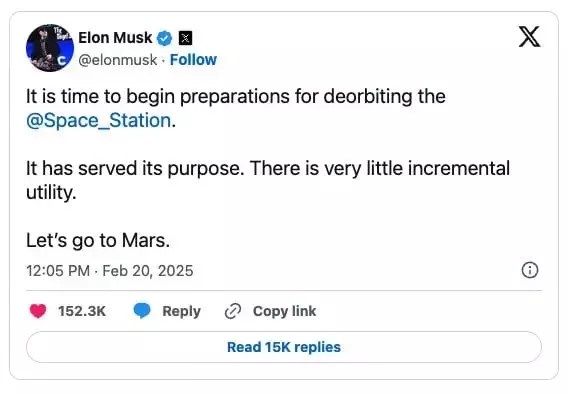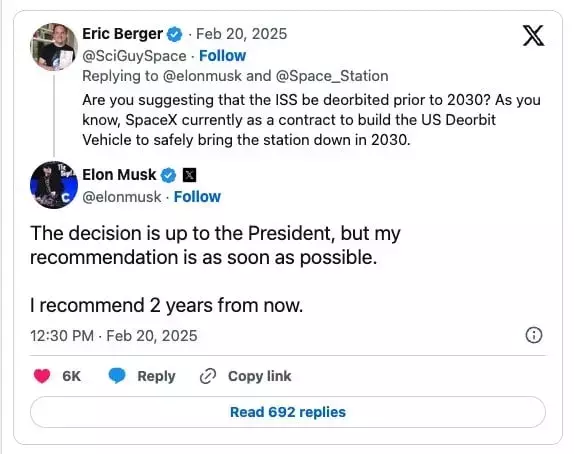




Musk's recent tweet advocating for the early deorbiting of the International Space Station (ISS) has sparked a debate about the future of space exploration. The billionaire entrepreneur, who owns SpaceX, suggested that the station has served its purpose and should be decommissioned by 2027. This timeline is three years ahead of the scheduled retirement. While the ISS is nearing the end of its operational lifespan, it still holds significant value for ongoing research and international collaboration in space.
The Importance of Continued ISS Operations
The ISS remains a vital platform for scientific research and international cooperation. Despite its age, the station continues to provide valuable data on the effects of microgravity on human health, which is crucial for future long-duration space missions. Moreover, the ISS symbolizes humanity's continuous presence in space and serves as a testament to global collaboration. Its decommissioning before the planned date could disrupt critical experiments and leave a gap in low Earth orbit operations.
The station's importance cannot be overstated. It is not just an American asset but a collaborative effort involving multiple countries, including Russia, Canada, Japan, and Europe. The research conducted aboard the ISS is essential for understanding how to safely send humans on extended journeys, such as to Mars. Prematurely ending these studies could set back progress in space exploration. Additionally, the ISS plays a key role in preparing astronauts for deep space missions, including the Artemis program aimed at returning humans to the Moon. Without a replacement in place, dismantling the station early would leave NASA without a crucial research facility.
Potential Implications of Musk's Proposal
Musk's push for an accelerated decommissioning schedule raises questions about the motivations behind his suggestion. SpaceX, a major contractor for NASA, stands to benefit from redirecting resources toward Mars missions. However, this shift could come at the expense of ongoing research and development efforts. Critics argue that Musk's urgency may overlook the need for thorough preparation and testing required for safe long-duration space travel.
Musk's involvement in shaping U.S. space policy presents a conflict of interest, given SpaceX's reliance on NASA contracts. The company has been tasked with designing the vehicle that will eventually deorbit the ISS, a project valued at up to $843 million. The complexity of this operation cannot be understated, as it involves guiding the largest human-made structure in space into a controlled reentry. Any miscalculation could pose significant risks. Furthermore, Musk's focus on Mars seems to overshadow the practical steps needed to ensure astronaut safety and technological readiness. The ISS remains a critical stepping stone in achieving these ambitious goals, and its premature closure could jeopardize future endeavors in space exploration.
